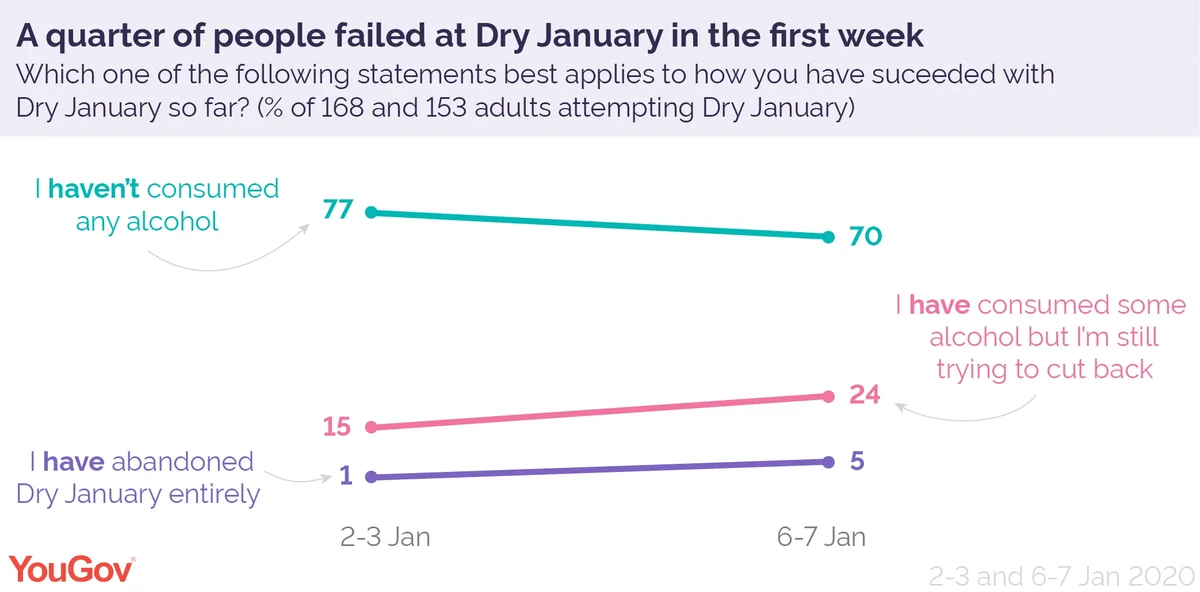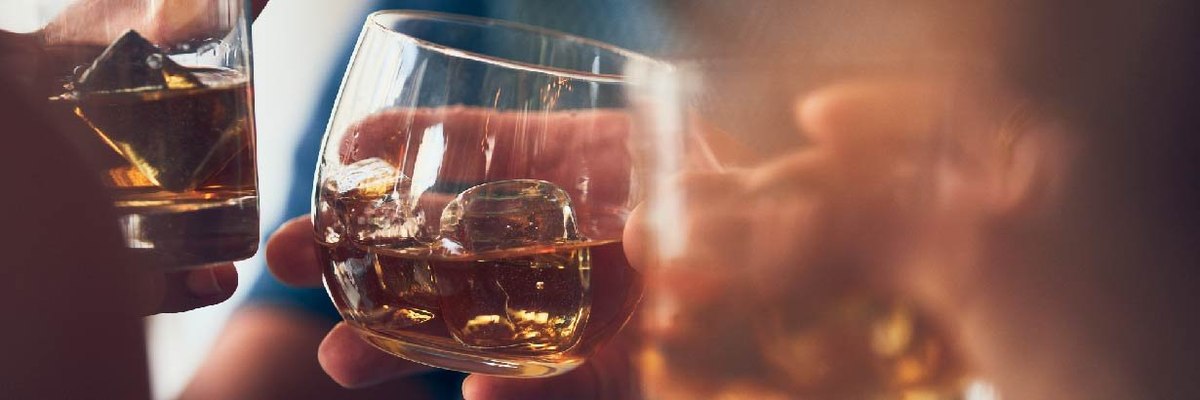Dry January is a popular New Year challenge, but YouGov research shows that many attempting it have already fallen off the wagon – just days into 2020
Nothing inspires a health kick like waking up on New Year’s Day with a sore head, a diminishing bank balance and an expanding waistline. One in nine Brits (11%) who drink alcohol are opting for a fresh start and intend to stay off the booze in January.
But good intentions and reality can conflict. A week into January, 29% of people taking part in the campaign confess they have slipped and had a sip. In fact, 16% had already consumed alcohol by January 3rd.
A quarter of Dry January participants intend to persist with the challenge despite succumbing to temptation in the first week. But one in twenty (5%) have had enough – they’ve given up entirely and are back on the booze.
Most people doing Dry January (70%) have managed to stay sober so far. We will keep monitoring the situation as it unfolds and report back once the month is complete.

Our figures show that livers around the country will be rejoicing at a break in January. Christmas is the booziest time of year say two thirds of Brits who consume alcohol. One in eight people (13%) drink much more in December than at other times.
New Year, old you
While relatively few people participate in Dry January, classic New Year’s resolutions are more common – and even harder to keep up.
A quarter of Brits pledged they would better themselves in the New Year – for example by adopting a healthier lifestyle, saving money or reducing their screen time. A separate YouGov survey shows that the three most common resolutions all focus on health and diet.
Three days into the New Year, just under a third had failed to keep some resolutions, while one in ten had failed in every aspect.
Younger people were especially hopeful that a date change would help them root out bad habits – but more likely to be unsuccesful. Two in five 18- to 24-year-olds had made resolutions, compared to just under a fifth of people aged 55 or older.
One in six (16%) 18- to 24-year-olds had broken all of their resolutions by 3 January – over twice as many as those aged 55 and older (7%).
Luckily, there’s always next year.
See the full results here and here








